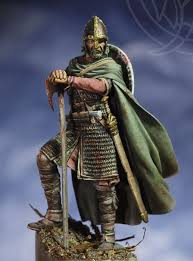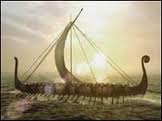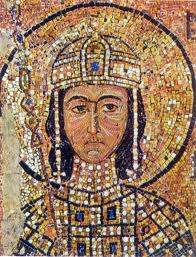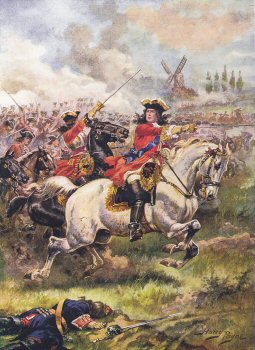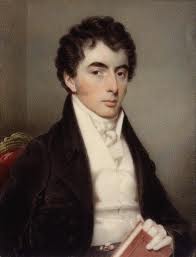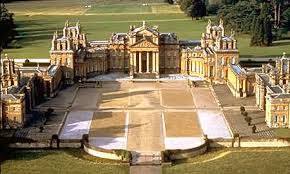‘Several mounds of human being still remained where they had fallen, crushed down and smothered. Some of these still groaning, others with staring eyes, were gasping for breath, and others would never breathe more. All was silent save those low sounds, and the occasional snorting and pawing of steeds.’

Percy Bysshe SAhelley
Just a few months ago the actress Maxine Peake gave what Paul Vallely in The Independent referred to as a ‘bravura performance of The Masque of Anarchy, the long poem which Percy Bysshe Shelley wrote in indignation against the Peterloo Massacre of 1819’. This was part of this year’s Manchester International Festival. Vallely continued: ‘Dressed in a plain white shift, her blonde-hair neatly bobbed as if to be free of catching in the furious looms of the mill, Maxine Peake, in a prodigious act of memory, delivered a 50-minute rendition of Shelley’s rhetorical rhapsody with such pace and passion that it felt not like a performance so much as being present at a piece of history. Yet with the beauty and ire of an avenging angel she was not recalling the past so much as speaking to a present in which her words would have echoed as aptly now in Tahrir Square.’ The Masque has been called ‘the greatest political poem ever written in English’. I wish I had been there.

The Massacre of Peterloo
I have long wanted to write about the Peterloo massacre. It was hugely influential in ordinary people winning the right to vote, led to the rise of the Chartist Movement from which grew the Trade Unions, and also resulted in the establishment of the Manchester Guardian newspaper, all good things. According to Nick Mansfield, director of the People’s History Museum in Salford, ‘Peterloo is a critical event not only because of the number of people killed and injured, but because ultimately it changed public opinion to influence the extension of the right to vote and give us the democracy we enjoy today. It was critical to our freedoms.’
The problem was that so much has been written about the massacre, scholarly and otherwise, that what more was left to be said? Perhaps not much; so as is often the case I’ll find my way in via poetry. What was ‘The Masque of Anarchy’?
A little history is perhaps in order. Here I will simply quote from The Peterloo Massacre (www.peterloomassacre.org). It tells the basic story simply but well:
‘On the 16th of August 1819 the huge open area around what’s now St Peters Square, Manchester, played host to an outrage against over 60,000 peaceful pro-democracy and anti-poverty protesters; an event which became known as the Peterloo Massacre. An estimated 18 people, including a woman and a child, died from sabre cuts and trampling. Over 700 men, women and children received extremely serious injuries. All in the name of liberty and freedom from poverty.
The Massacre occurred during a period of immense political tension and mass protests. Fewer than 2% of the population had the vote, and hunger was rife with the disastrous Corn Laws making bread unaffordable.
 On the morning of 16th August the crowd began to gather, conducting themselves, according to contemporary accounts, with dignity and discipline, the majority dressed in their Sunday best. The key speaker was to be famed orator Henry Hunt, the platform consisted of a simple cart… the space was filled with banners – REFORM, UNIVERSAL SUFFRAGE, EQUAL REPRESENTATION and, touchingly, LOVE. Many of the banner poles where topped with the red cap of liberty – a powerful symbol at the time.
On the morning of 16th August the crowd began to gather, conducting themselves, according to contemporary accounts, with dignity and discipline, the majority dressed in their Sunday best. The key speaker was to be famed orator Henry Hunt, the platform consisted of a simple cart… the space was filled with banners – REFORM, UNIVERSAL SUFFRAGE, EQUAL REPRESENTATION and, touchingly, LOVE. Many of the banner poles where topped with the red cap of liberty – a powerful symbol at the time.
Local magistrates watching from a window near the field panicked at the sight of the crowd, and read the riot act, effectively ordering what little of the crowd could hear them to disperse.
As 600 Hussars, several hundred infantrymen; an artillery unit with two six-pounder guns, 400 men of the Cheshire cavalry and 400 special constables waited in reserve, the local Yeomanry were given the task of arresting the speakers. The Yeomanry, led by Captain Hugh Birley and Major Thomas Trafford, were essentially a paramilitary force drawn from the ranks of the local mill and shop owners.
On horseback, armed with cutlasses and clubs, many were familiar with, and had old scores to settle with, the leading protesters. (In one instance, spotting a reporter from the radical Manchester Observer, a Yeomanry officer called out “There’s Saxton, damn him, run him through.”)
Heading for the hustings, they charged when the crowd linked arms to try and stop the arrests, and proceeded to strike down banners and people with their swords. Rumours from the period have persistently stated the Yeomanry were drunk.
The panic was interpreted as the crowd attacking the yeomanry, and the Hussars (Led by Lieutenant Colonel Guy L’Estrange) were ordered in…
The term ‘Peterloo’, was intended to mock the soldiers who attacked unarmed civilians by echoing the term ‘Waterloo’ – the soldiers from that battle being seen by many as genuine heroes.
By 2pm the carnage was over, and the field left full of abandoned banners and dead bodies. Journalists present at the event were arrested; others who went on to report the event were subsequently jailed. The businessman John Edwards Taylor went on to help set up the Guardian newspaper as a reaction to what he’d seen. The speakers and organizers were put on trial, at first under the charge of High treason – a charge that was reluctantly dropped by the persecution. The Hussars and Magistrates received a message of congratulations from the Prince Regent, and were cleared of any wrong-doing by the official inquiry.’

Samuel Bamford.
There are several eye-witness accounts of the massacre. One was written by Samuel Bamford (1788 – 1872):
In about half an hour after our arrival the sounds of music and reiterated shouts proclaimed the near approach of Mr Hunt and his party; and in a minute or two they were seen coming from Deansgate, preceded by a band of music and several flags.
Their approach was hailed by one universal shout from probably 80,000 persons. They threaded their way slowly past us and through the crowd, which Hunt eyed, I thought, with almost as much of astonishment as satisfaction. This spectacle could not be otherwise in his view than solemnly impressive.
Such a mass of human beings he had not beheld till then. His responsibility must weigh on his mind. The task was great, and not without its peril. The meeting was indeed a tremendous one.
Mr Hunt, stepping towards the front of the stage, took off his white hat, and addressed the people.
We had got to nearly the outside of the crowd, when a noise and strange murmur arose towards the church. Some persons said it was the Blackburn people coming, and I stood on tiptoe and looked in the direction whence the noise proceeded, and saw a party of cavalry in blue and white uniform come trotting, sword in hand, round the corner of a garden wall, and to the front of a row of new houses, where they reined up in a line.
“The soldiers are here,” I said; “we must go back and see what this means.” “Oh,” someone made reply, “they are only come to be ready if there should be any disturbance in the meeting.” “Well, let us go back,” I said, and we forced our way towards the colours.
On the cavalry drawing up they were received with a shout of goodwill, as I understood it. They shouted again, waving their sabres over their heads; and then, slackening rein, and striking spur into their steeds, they dashed forward and began cutting the people…”
“Stand fast,” I said, “they are riding upon us; stand fast”.
The cavalry were in confusion: they evidently could not, with all the weight of man and horse, penetrate that compact mass of human beings and their sabres were plied to hew a way through naked held-up hands and defenceless heads; and then chopped limbs and wound-gaping skulls were seen; and groans and cries were mingled with the din of that horrid confusion.
Many females appeared as the crowd opened; and striplings or mere youths also were found. Their cries were piteous and heart-rending, and would, one might have supposed, have disarmed any human resentment: but here their appeals were in vain.
In ten minutes from the commencement of the havoc the field was an open and almost deserted space. The sun looked down through a sultry and motionless air. The curtains and blinds of the windows within view were all closed.
The hustings remained, with a few broken and hewed flag-staves erect, and a torn and gashed banner or two dropping; whilst over the whole field were strewed caps, bonnets, hats, shawls, and shoes, and other parts of male and female dress, trampled, torn, and bloody.
Several mounds of human being still remained where they had fallen, crushed down and smothered. Some of these still groaning, others with staring eyes, were gasping for breath, and others would never breathe more.
All was silent save those low sounds, and the occasional snorting and pawing of steeds.
Passages in the Life of a Radical, 1864

Hunt’s arrest at Peterloo
As mentioned, the event was called Peterloo in mock echo of Waterloo where the hussars of the British Army had just scored a great victory over the forces of Napoleon. ‘Only this time the sabre-wielding cavalry were sent not upon a foreign foe but on 60,000 unarmed working men, women and children who had gathered on Peter’s field in Manchester to protest against wage cuts in the cotton mills which belched such smoke into the air above the city that horrified visitors reported the sky was permanently black.’
Shelley was in Italy when he heard of the massacre. It ‘so shocked the poet that he was compelled to pen his protest’. Dr Alison Morgan of Salford University has said that Peterloo was ‘important to him because he opposed repression of the people’. ‘He loathed the government and was himself under investigation before he left for the continent… Peterloo epitomised the brutality of the government but also provided some hope that a revolution or at least some form of mass protest would occur.’
As I lay asleep in Italy
There came a voice from over the Sea,
And with great power it forth led me
To walk in the visions of Poesy.
Shelley completed the 91 stanza The Masque of Anarchy in just a few days. It is a long and complex poem, I have reproduced it in full at the end, but, like all poetry, it is meant to be heard not read. I wish I had a recording of Albert Hall performance to share with you, alas I do not. However, one Manchester lady, whose name I don’t know, has made available her fine reading. It is in two parts, I would highly recommend you listen to these before reading further: here and here.
The Guardian’s critic John Mullan wrote, ‘the poem is a prophetic dream, an apocalyptic vision of Regency Britain and the shaky legitimacy of its ruling class. In the first part, the nation’s leading politicians parade like monsters, leading the figure of Anarchy around on a white horse to trample the multitudes. In this vision, the true anarchists are Britain’s rulers, who delight in fear and disorder. Anarchy’s followers, who include lawyers and priests, take possession of palace and parliament’.
This is absolutely true but we must beware an anachronistic use of the term ‘anarchy’. Today the word has so many negative connotations in everyday usage that its various earlier meanings are lost. Webster’s dictionary gives the principle meaning of anarchy as: ‘A situation of confusion and wild behaviour, in which the people in a country, group, organization, etc., are not controlled by rules or laws.’ Subsidiary definitions include that anarchy is the ‘absence of government’, ‘a state of lawlessness or political disorder due to the absence of governmental authority’, ‘a utopian society of individuals who enjoy complete freedom without government’, or even the ‘absence or denial of any authority or established order’.
In the later part of the nineteenth century ‘anarchy’ never meant this at all. It certainly never meant ‘a state of lawlessness’ or ‘freedom without government’. No, what anarchy meant was simply that any exercise of authority and power, whether by the government or otherwise, had to justify itself before the people. Even earlier, around the time Shelley wrote his poem, anarchy was pretty much synonymous with tyranny, with, if you like, the lack of any observance of ‘natural law’. In The Masque of Anarchy Shelley is quite explicit: Anarchy is the king.
Last came Anarchy : he rode
On a white horse, splashed with blood ;
He was pale even to the lips,
Like Death in the Apocalypse.
And he wore a kingly crown ;
And in his grasp a sceptre shone ;
On his brow this mark I saw—
‘I AM GOD, AND KING, AND LAW!’
Then all cried with one accord,
‘Thou art King, and God, and Lord ;
Anarchy, to thee we bow,
Be thy name made holy now!’
And Anarchy, the Skeleton,
Bowed and grinned to every one,
As well as if his education
Had cost ten millions to the nation.

Robert Stewart, Viscount Castlereagh, ‘Murder’
The king was Shelley’s last of ‘four horsemen of the apocalypse’ who were oppressing the people of Britain. The other three were Murder (Viscount Castlereagh, the British Foreign Secretary), Fraud (Baron Eldon, the Lord Chancellor) and Hypocrisy (Henry Addington, Viscount Sidmouth, Britain’s Home Secretary).
And with a mighty troop around
With their trampling shook the ground,
Waving each a bloody sword,
For the service of their Lord.
And with glorious triumph they
Rode through England proud and gay,
Drunk as with intoxication
Of the wine of desolation.
O’er fields and towns, from sea to sea,
Passed the Pageant swift and free,
Tearing up, and trampling down ;
Till they came to London town.
They are challenged only by a “maniac maid” called Hope, though “she looked more like Despair”.
Anarchy leads armed forces through England, scaring the population. Soon, the “seven bloodhounds” get to England, where they massacre the innocent public. They continue to butcher the innocent as they travel through the land, eventually reaching London, where the “dwellers,” who are by this time aware of the havoc these masked tyrants are running, are “panic-stricken” and attempt to run away.
Anarchy claims to be God, King, and Law, rejecting all traditional sources of authority and power. Some are duped and choose to follow him. The ‘adoring multitude’ is fooled by the disguises worn by state establishments. ‘Shelley is pointing out that the institutions in which people are encouraged to place their trust and faith are the very ones that are out to ‘trample’ them. While the people of England continue to worship their King, they are unable to see the anarchist behind the mask.’
This is the ‘Mask of Anarchy’.
As Anarchy’s forces proceed with their destruction, even Hope cries out in despair. ‘Finally, however, a mist of hope emerges, carrying thoughts. This revives Hope and kills Anarchy. The land of England seems to speak to the English, asking them to rise and retake true freedom, since they really have been oppressed and should fight back. Instead of trading ‘blood for blood’ and ‘wrong for wrong,’ the people should finally turn back to justice, wisdom, peace, and love in order to achieve liberty. They should be guided by ‘Science, Poetry, and Thought’ and quiet virtues. The true revolution should be ‘measured’ and use words instead of swords, drawing on the ‘old laws of England’ instead of the new laws of the oppressors. When the tyrants fight back, the people should let their anger show itself until the tyrants fall back in shame. The people will then ‘Rise like Lions after slumber in ‘unvanquishable number’ to reform England.’
Rise like Lions after slumber
In unvanquishable number—
Shake your chains to earth like dew
Which in sleep had fallen on you—
Ye are many—they are few.
I’ll leave the last words to Paul Fitzgerald, who chairs a campaign to have a permanent Peterloo memorial erected in Manchester. He writes that the poem’s modern relevance lies in the fact it ‘reminds us of the sacrifices that people went through to push for the vote’:
When you consider what people did and how brave they were, walking past armed soldiers knowing that they had been declared illegal and how the state had behaved before, it begs the question as to whether we are looking after our hard-won democracy?
It’s so easy to take democracy for granted and we forget what a struggle it was to obtain it in the first place.
In the age of increasing government surveillance and the erosion of civil liberties, it is a timely reminder of how governments are not averse to attacking (their) own people.

Peterloo Massacre by Richard Carlile
The Mask of Anarchy by Percy Bysshe Shelley:
As I lay asleep in Italy
There came a voice from over the Sea,
And with great power it forth led me
To walk in the visions of Poesy.
I met Murder on the way—
He had a mask like Castlereagh—
Very smooth he looked, yet grim;
Seven blood-hounds followed him:
All were fat; and well they might
Be in admirable plight,
For one by one, and two by two,
He tossed them human hearts to chew
Which from his wide cloak he drew.
Next came Fraud, and he had on,
Like Lord Eldon, an ermined gown ;
His big tears, for he wept well,
Turned to mill-stones as they fell.
And the little children, who
Round his feet played to and fro,
Thinking every tear a gem,
Had their brains knocked out by them.
Clothed with the Bible, as with light,
And the shadows of the night,
Like Sidmouth, next, Hypocrisy
On a crocodile rode by.
And many more Destructions played
In this ghastly masquerade,
All disguised, even to the eyes,
Like Bishops, lawyers, peers, and spies.
Last came Anarchy: he rode
On a white horse, splashed with blood;
He was pale even to the lips,
Like Death in the Apocalypse.
And he wore a kingly crown;
And in his grasp a sceptre shone;
On his brow this mark I saw—
‘I AM GOD, AND KING, AND LAW!’
With a pace stately and fast,
Over English land he passed,
Trampling to a mire of blood
The adoring multitude.
And with a mighty troop around
With their trampling shook the ground,
Waving each a bloody sword,
For the service of their Lord.
And with glorious triumph they
Rode through England proud and gay,
Drunk as with intoxication
Of the wine of desolation.
O’er fields and towns, from sea to sea,
Passed the Pageant swift and free,
Tearing up, and trampling down;
Till they came to London town.
And each dweller, panic-stricken,
Felt his heart with terror sicken
Hearing the tempestuous cry
Of the triumph of Anarchy.
For from pomp to meet him came,
Clothed in arms like blood and flame,
The hired murderers, who did sing
‘Thou art God, and Law, and King.
We have waited weak and lone
For thy coming, Mighty One!
Our purses are empty, our swords are cold,
Give us glory, and blood, and gold.’
Lawyers and priests a motley crowd,
To the earth their pale brows bowed ;
Like a bad prayer not over loud,
Whispering—‘Thou art Law and God.’—
Then all cried with one accord,
‘Thou art King, and God, and Lord ;
Anarchy, to thee we bow,
Be thy name made holy now!’
And Anarchy, the Skeleton,
Bowed and grinned to every one,
As well as if his education
Had cost ten millions to the nation.
For he knew the Palaces
Of our Kings were rightly his ;
His the sceptre, crown, and globe,
And the gold-inwoven robe.
So he sent his slaves before
To seize upon the Bank and Tower,
And was proceeding with intent
To meet his pensioned Parliament
When one fled past, a maniac maid,
And her name was Hope, she said:
But she looked more like Despair,
And she cried out in the air :
My father Time is weak and gray
With waiting for a better day;
See how idiot-like he stands,
Fumbling with his palsied hands!
He has had child after child,
And the dust of death is piled
Over every one but me—
Misery, oh, Misery!’
Then she lay down in the street,
Right before the horses feet,
Expecting, with a patient eye,
Murder, Fraud, and Anarchy.
When between her and her foes
A mist, a light, an image rose.
Small at first, and weak, and frail
Like the vapour of a vale :
Till as clouds grow on the blast,
Like tower-crowned giants striding fast,
And glare with lightnings as they fly,
And speak in thunder to the sky.
It grew—a Shape arrayed in mail
Brighter than the viper’s scale,
And upborne on wings whose grain
Was as the light of sunny rain.
On its helm, seen far away,
A planet, like the Morning’s, lay;
And those plumes its light rained through
Like a shower of crimson dew.
With step as soft as wind it passed
O’er the heads of men—so fast
That they knew the presence there,
And looked,—but all was empty air.
As flowers beneath May’s footstep waken,
As stars from Night’s loose hair are shaken,
As waves arise when loud winds call,
Thoughts sprung where’er that step did fall.
And the prostrate multitude
Looked—and ankle-deep in blood,
Hope, that maiden most serene,
Was walking with a quiet mien :
And Anarchy, the ghastly birth,
Lay dead earth upon the earth ;
The Horse of Death tameless as wind
Fled, and with his hoofs did grind
To dust the murderers thronged behind.
A rushing light of clouds and splendour,
A sense awakening and yet tender
Was heard and felt—and at its close
These words of joy and fear arose
As if their own indignant Earth
Which gave the sons of England birth
Had felt their blood upon her brow,
And shuddering with a mother’s throe
Had turned every drop of blood
By which her face had been bedewed
To an accent unwithstood,—
As if her heart cried out aloud:
Men of England, heirs of Glory,
Heroes of unwritten story,
Nurslings of one mighty Mother,
Hopes of her, and one another;
Rise like Lions after slumber
In unvanquishable number.
Shake your chains to earth like dew
Which in sleep had fallen on you—
Ye are many—they are few.
What is Freedom?—ye can tell
That which slavery is, too well—
For its very name has grown
To an echo of your own.
Tis to work and have such pay
As just keeps life from day to day
In your limbs, as in a cell
For the tyrants’ use to dwell,
So that ye for them are made
Loom, and plough, and sword, and spade,
With or without your own will bent
To their defence and nourishment.
‘Tis to see your children weak
With their mothers pine and peak,
When the winter winds are bleak,—
They are dying whilst I speak.
‘Tis to hunger for such diet
As the rich man in his riot
Casts to the fat dogs that lie
Surfeiting beneath his eye ;
’Tis to let the Ghost of Gold
Take from Toil a thousandfold
More than e’er its substance could
In the tyrannies of old.
Paper coin—that forgery
Of the title-deeds, which ye
Hold to something from the worth
Of the inheritance of Earth.
’Tis to be a slave in soul
And to hold no strong control
Over your own wills, but be
All that others make of ye.
And at length when ye complain
With a murmur weak and vain
’Tis to see the Tyrant’s crew
Ride over your wives and you—
Blood is on the grass like dew.
Then it is to feel revenge
Fiercely thirsting to exchange
Blood for blood—and wrong for wrong—
Do not thus when ye are strong.
Birds find rest, in narrow nest
When weary of their wingèd quest;
Beasts find fare, in woody lair
When storm and snow are in the air.
Horses, oxen, have a home,
When from daily toil they come;
Household dogs, when the wind roars,
Find a home within warm doors.
Asses, swine, have litter spread
And with fitting food are fed;
All things have a home but one—
Thou, Oh, Englishman, hast none !
This is Slavery—savage men,
Or wild beasts within a den
Would endure not as ye do—
But such ills they never knew.
What art thou, Freedom? O! could slaves
Answer from their living graves
This demand—tyrants would flee
Like a dream’s imagery:
Thou are not, as impostors say,
A shadow soon to pass away,
A superstition, and a name
Echoing from the cave of Fame.
For the labourer thou art bread,
And a comely table spread
From his daily labour come
In a neat and happy home.
Thou art clothes, and fire, and food
For the trampled multitude—
No—in countries that are free
Such starvation cannot be
As in England now we see.
To the rich thou art a check,
When his foot is on the neck
Of his victim, thou dost make
That he treads upon a snake.
Thou art Justice—ne’er for gold
May thy righteous laws be sold
As laws are in England—thou
Shield’st alike both high and low.
Thou art Wisdom—Freemen never
Dream that God will damn for ever
All who think those things untrue
Of which Priests make such ado.
Thou art Peace—never by thee
Would blood and treasure wasted be
As tyrants wasted them, when all
Leagued to quench thy flame in Gaul.
What if English toil and blood
Was poured forth, even as a flood ?
It availed, Oh, Liberty.
To dim, but not extinguish thee.
Thou art Love—the rich have kissed
Thy feet, and like him following Christ,
Give their substance to the free
And through the rough world follow thee,
Or turn their wealth to arms, and make
War for thy belovèd sake
On wealth, and war, and fraud—whence they
Drew the power which is their prey.
Science, Poetry, and Thought
Are thy lamps ; they make the lot
Of the dwellers in a cot
So serene, they curse it not.
Spirit, Patience, Gentleness,
All that can adorn and bless
Art thou—let deeds, not words, express
Thine exceeding loveliness.
Let a great Assembly be
Of the fearless and the free
On some spot of English ground
Where the plains stretch wide around.
Let the blue sky overhead,
The green earth on which ye tread,
All that must eternal be
Witness the solemnity.
From the corners uttermost
Of the bounds of English coast ;
From every hut, village, and town
Where those who live and suffer moan
For others’ misery or their own,
From the workhouse and the prison
Where pale as corpses newly risen,
Women, children, young and old
Groan for pain, and weep for cold—
From the haunts of daily life
Where is waged the daily strife
With common wants and common cares
Which sows the human heart with tares—
Lastly from the palaces
Where the murmur of distress
Echoes, like the distant sound
Of a wind alive around
Those prison halls of wealth and fashion.
Where some few feel such compassion
For those who groan, and toil, and wail
As must make their brethren pale—
Ye who suffer woes untold,
Or to feel, or to behold
Your lost country bought and sold
With a price of blood and gold—
Let a vast assembly be,
And with great solemnity
Declare with measured words that ye
Are, as God has made ye, free—
Be your strong and simple words
Keen to wound as sharpened swords,
And wide as targes let them be,
With their shade to cover ye.
Let the tyrants pour around
With a quick and startling sound,
Like the loosening of a sea,
Troops of armed emblazonry.
Let the charged artillery drive
Till the dead air seems alive
With the clash of clanging wheels,
And the tramp of horses’ heels.
Let the fixèd bayonet
Gleam with sharp desire to wet
Its bright point in English blood
Looking keen as one for food.
Let the horsemen’s scimitars
Wheel and flash, like sphereless stars
Thirsting to eclipse their burning
In a sea of death and mourning.
Stand ye calm and resolute,
Like a forest close and mute,
With folded arms and looks which are
Weapons of unvanquished war,
And let Panic, who outspeeds
The career of armèd steeds
Pass, a disregarded shade
Through your phalanx undismayed.
Let the laws of your own land,
Good or ill, between ye stand
Hand to hand, and foot to foot,
Arbiters of the dispute,
The old laws of England—they
Whose reverend heads with age are gray,
Children of a wiser day;
And whose solemn voice must be
Thine own echo—Liberty !
On those who first should violate
Such sacred heralds in their state
Rest the blood that must ensue,
And it will not rest on you.
And if then the tyrants dare
Let them ride among you there,
Slash, and stab, and maim, and hew, —
What they like, that let them do.
With folded arms and steady eyes,
And little fear, and less surprise,
Look upon them as they slay
Till their rage has died away.’
Then they will return with shame
To the place from which they came,
And the blood thus shed will speak
In hot blushes on their cheek.
Every woman in the land
Will point at them as they stand—
They will hardly dare to greet
Their acquaintance in the street.
And the bold, true warriors
Who have hugged Danger in wars
Will turn to those who would be free,
Ashamed of such base company.
And that slaughter to the Nation
Shall steam up like inspiration,
Eloquent, oracular ;
A volcano heard afar.
And these words shall then become
Like Oppression’s thundered doom
Ringing through each heart and brain.
Heard again—again—again—
Rise like Lions after slumber
In unvanquishable number—
Shake your chains to earth like dew
Which in sleep had fallen on you—
Ye are many—they are few.’




 On the morning of 16th August the crowd began to gather, conducting themselves, according to contemporary accounts, with dignity and discipline, the majority dressed in their Sunday best. The key speaker was to be famed orator Henry Hunt, the platform consisted of a simple cart… the space was filled with banners – REFORM, UNIVERSAL SUFFRAGE, EQUAL REPRESENTATION and, touchingly, LOVE. Many of the banner poles where topped with the red cap of liberty – a powerful symbol at the time.
On the morning of 16th August the crowd began to gather, conducting themselves, according to contemporary accounts, with dignity and discipline, the majority dressed in their Sunday best. The key speaker was to be famed orator Henry Hunt, the platform consisted of a simple cart… the space was filled with banners – REFORM, UNIVERSAL SUFFRAGE, EQUAL REPRESENTATION and, touchingly, LOVE. Many of the banner poles where topped with the red cap of liberty – a powerful symbol at the time.




